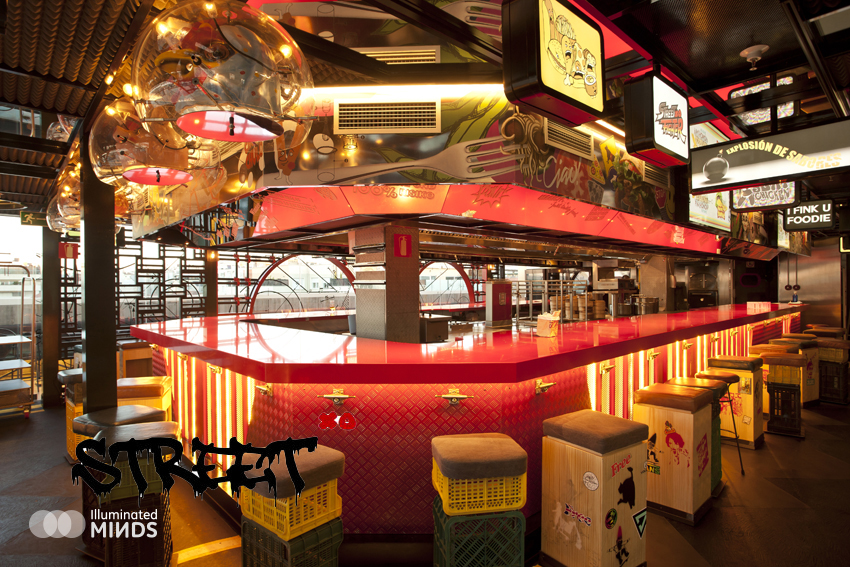Which sense gives you the greatest pleasure? For many people around the world, the answer would be their sense of taste, because eating truly excellent food can be one of the most intense sensory experiences. But fine dining is not only about the taste of what we eat or drink. The overall experience includes the other senses too, especially the perception and visual appearance of the food itself. Every restaurant knows that the ‘first bite is with the eye’ and so, in the world of dining and catering, lighting plays a vital role – the right lighting can transform a dish into a well-lit piece; bad lighting can turn it into a drab failure.
In fact, lighting has been shown to have a direct impact on success or failure in the food and service industry. According to an NPower survey conducted in the United Kingdom, roughly 30% of Brits will not even try the food at a restaurant if the lighting is bad—they’d rather just walk out.
Fast food restaurants simply rely on buzzing fluorescent lighting to bring in the customers; it’s bright, well-lit, simple and practical. At the other end of the spectrum is Dans le Noir, an international group of six restaurants in which the food is served in absolute darkness. The complete absence of any light at all is designed to heighten the experience of the other four senses. However, between these two extremes, there is an array of lighting choices, varying in intensity and tone that are fundamental to the ambience of any restaurant.
As technology advances, LED lighting solutions are being created and tailored to fit the needs of every business, and restaurants are no exception. The wide variety of gastronomic experiences require different solutions to meet each guest unique needs. The right lighting will set the stage and tone for an evening out.
For example, in a Michelin Star rated restaurant specializing in haute cuisine, each dish is the result of careful research that includes taste, aroma and color. Of course, close attention is also paid to how the food is lit. The key is lighting that enhances the pursued effects of the set up and the food, displaying those colors in the most vivid and real way possible.
A trendy downtown restaurant, on the other hand, may differ slightly in its aesthetics. As well as places to eat, this is a more social place – somewhere to ‘see and be seen’. As such, they work to create an ambience that works for dining in larger groups. Here, the lighting also has to promote the architectural elements of the surrounding space, while also complementing the food and drink.
More traditional restaurants may focus more on creating a unique brand, often based on the quality and value of the food. This may require a cozy ambience that depends on softer and more flexible lighting design, making the diners feel comfortable from the moment they sit down, until the moment they leave.
However, there is another more practical side to the culinary experience. While lighting design for dining is about creating a specific atmosphere, each restaurant is also a business and restaurateurs also have a growing awareness and concern about the energy efficiency and sustainability of the experience that they provide for the diners.












